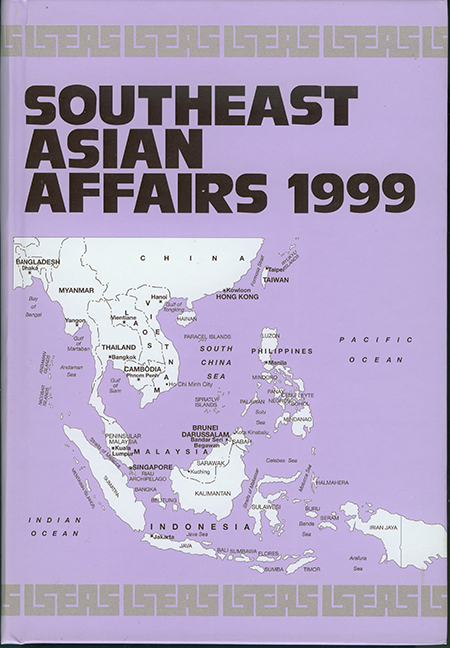Vietnam: Is Globalization a Friend or a Foe?
from VIETNAM
Published online by Cambridge University Press: 21 October 2015
Summary
In the current trend no country can close its doors. But if you do it in a hasty way it may come to a collapse.
— Prime Minister Pham Van KhaiIntroduction
Vietnam's ruling Communist Party found itself challenged on many fronts in 1998. Natural disasters in the form of its worst tropical cyclone in thirty-four years as well as prolonged drought led to the loss of thousands of lives and damage to infrastructure, property and crops that ran into millions of dollars. The regional financial and economic crisis made itself felt in terms of declining foreign direct investment and exports, affecting the balance of payments as well as the government's capacity to finance investment growth. Domestically, the first phase of doi moi, or economic reform, has exhausted itself, leaving a banking sector beset by non-performing loans and low liquidity that is choking off credit to both state-owned and private enterprises. Politically, the party's legitimacy has been challenged by growing rural discontent against the abuse of power by local officials and declining living standards in “hot spots” like Thai Binh, rising unemployment as well as growing disillusion with corruption within the party3 and its unresponsiveness to the people. In a new departure, government and party leaders began referring to “globalization” and its impact on Vietnam in policy statements. Would the party react to these forces by pressing on with doi moi II and a new set of reforms, or opt for stricter political and economic control?
The party has chosen a pragmatic mix of strategies: piecemeal reform aimed at shoring up its legitimacy (particularly with its rural power-base); a pro-active foreign policy to encourage trade in new markets; and a prominent socioeconomic role for its security forces, with a wider scope for intervention. Whilst the Pham Van Khai government and the new Party General Secretary speak the same language of reform, they underline the need to manage the pace of that reform. The lesson drawn from the regional crisis is the primacy of stability.
- Type
- Chapter
- Information
- Southeast Asian Affairs 1999 , pp. 339 - 357Publisher: ISEAS–Yusof Ishak InstitutePrint publication year: 1999



